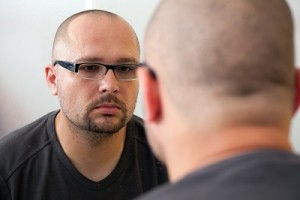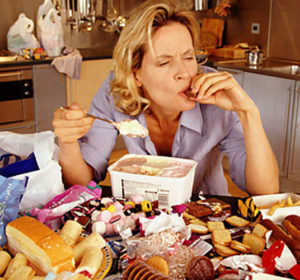 Our society today is saturated with images of promiscuity, sexual misconduct, and inappropriate sexual behavior that are becoming more readily accepted within our culture. With the widespread access of the internet and plethora of sexual material, it is no wonder that an estimated 12 million people suffer from sexual addiction in the United States [1].
Our society today is saturated with images of promiscuity, sexual misconduct, and inappropriate sexual behavior that are becoming more readily accepted within our culture. With the widespread access of the internet and plethora of sexual material, it is no wonder that an estimated 12 million people suffer from sexual addiction in the United States [1].
Sexual addiction is typically characterized by compulsive and obsessive behaviors that are often rooted in trauma, emotional pain, poor coping mechanisms, or lack of intimacy. As defined by the National Council on Sex Addiction and Compulsivity, sexual addition is:
“engaging in persistent and escalating patterns of sexual behavior…despite increasing negative consequences to self and others [2]”
Many individuals who struggle with an addiction to sex cannot stop or control their behaviors, even if their choices are ensuing harmful effects to them and their loved ones.
The Guilt and Shame of Sexual Addiction
 To further complicate matters, those that struggle with sexual compulsion often feel ashamed and guilty. This can drive the sufferer further into isolation and compound the problem. Many people struggle in silence for years rather than seeking life-enhancing treatment from trained professionals.
To further complicate matters, those that struggle with sexual compulsion often feel ashamed and guilty. This can drive the sufferer further into isolation and compound the problem. Many people struggle in silence for years rather than seeking life-enhancing treatment from trained professionals.
An addiction to sex has many similar connections to other compulsive disorders, such as a drug addiction or eating disorder. Previous research studies have documented the co-morbidity of sex addition with other addictions, such as:
- Chemical dependency
- Eating disorders
- Compulsive spending [3]
It is not uncommon for a person who is struggling with sex addiction to also have an eating disorder, such as anorexia nervosa, bulimia nervosa, or binge eating disorder.
Commonalities Between Sex Addiction and Eating Disorders
What are some of the commonalities that exist between sex addiction and eating disorders? Here are some of the similar characteristics of these disorders that can cause the two to parallel one another:
Obsessive-compulsive behaviors
With sexual addiction and eating disorders, there is often a repetitive impulse to engage in obsessive-compulsive behaviors. In the case of sexual addiction, this may be manifested as compulsive masturbation, obsessive dating, or excessive use of pornography.
A mirroring situation in a person with an eating disorder would be:
- Repetitive counting of calories
- Compulsive bingeing and purging episodes
- Excessive exercising
All of these types of behaviors are dysfunctional responses to triggers, whether external or internal.
Cyclic Actions
 A person who struggles with either an eating disorder or sexual addition likely finds themselves stuck in a vicious cycle of behaviors and emotions. For example, a person addicted to sex may experience impulses that lead them to act out on their desires.
A person who struggles with either an eating disorder or sexual addition likely finds themselves stuck in a vicious cycle of behaviors and emotions. For example, a person addicted to sex may experience impulses that lead them to act out on their desires.
These behaviors are likely negative and detrimental, which leads to feelings of shame, guilt, denial, confusion, or despair. These overwhelming feelings can trigger an impulse to engage in maladaptive behaviors once again, which perpetuates the cycle.
This is also seen in eating disorders, such as binge eating disorder. A person struggling with this eating disorder may feel compelled to gorge on vast amounts of food as a means of coping with or numbing painful emotions. The feelings that follow the binge episode may include guilt and shame, which can further trigger the cycle of binge eating.
Detachment
Because of the nature of both eating disorders and sexual addiction, sufferers will repeatedly engage in destructive behaviors, despite the harmful consequences that may result. Though their life may be damaged emotionally, financially, psychologically, and/or physically, a person cannot simply choose to stop their injurious patterns.
This is a result of a number of complex factors, such as genetics, biological causes (hormones and neurotransmitters in the brain for example), learned emotional responses, and more.
Help Is Available for Sexual Addiction
If you or a loved one is suffering from a sexual addiction and an eating disorder, be encouraged in knowing that you can receive help for these conditions. Increased awareness and understanding about these disorders has helped improve treatment methods, which can give a person the tools they need to overcome.
Perhaps you have experienced fear or shame about your struggle and this has caused you to be reserved about reaching out for help. Taking that first step and asking for help can be life-changing as you seek the resources available to overcome the struggle with a sexual addiction and/or eating disorder.
 About the Author:
About the Author:
Crystal Karges, MS, RDN, IBCLC, is a Masters-level Registered Dietitian Nutritionist (RDN) with a specialty focus in eating disorders, maternal/child health and wellness, and intuitive eating. Combining clinical experience with a love of social media and writing, Crystal serves as the Director of Content and Social Media for Eating Disorder Hope/Addiction Hope, where her passion to help others find recovery and healing is integrated into each part of her work.
As a Certified Intuitive Eating Counselor, Crystal has dedicated her career to helping others establish a healthy relationship with food and body through her work with EDH/AH and nutrition private practice.
References:
- American Association for Marriage and Family Therapy, “AAMFT Therapy Topic – Sexual Addiction”, http://www.aamft.org/imis15/aamft/Content/Consumer_Updates/Sexual_Addiction.aspx
- “Sexual Compulsivity”, http://www.promises.com/treatment-programs/sexual-compulsivity/
- Bargains With Chaos: Sex Addicts and Addiction Interaction Disorder, http://www.iitap.com/images/BargainsWithChaos-small_file.pdf
The opinions and views of our guest contributors are shared to provide a broad perspective of addictions. These are not necessarily the views of Addiction Hope, but an effort to offer a discussion of various issues by different concerned individuals.
We at Addiction Hope understand that addictions result from a combination of environmental and genetic factors. If you or a loved one are suffering from an addiction, please know that there is hope for you, and seek immediate professional help.
Published on October 16, 2014
Last Updated & Reviewed By: Jacquelyn Ekern, MS, LPC on June 4, 2018
Published on AddictionHope.com
